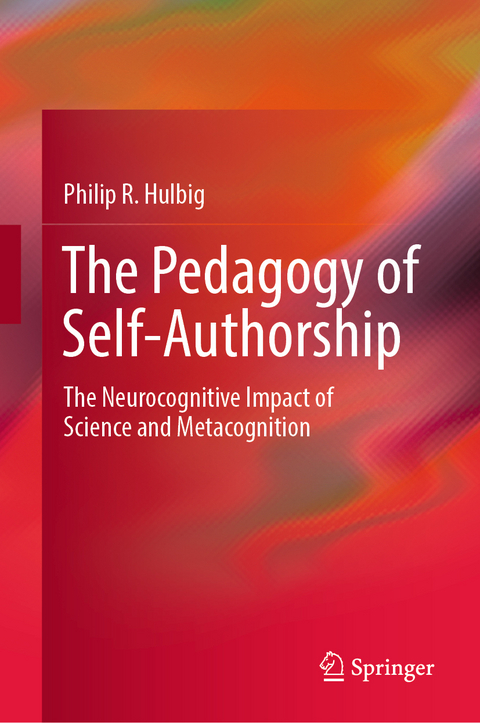
The Pedagogy of Self-Authorship
Springer International Publishing (Verlag)
978-3-031-41435-0 (ISBN)
This book is a deep dive into the developmental and neurocognitive impact of metacognition and its role in self-transformation. It connects the latest science on learning, neuroplasticity, and self-development with the rich history of metacognitive educational practices, creating an educational vision capable to address difficult issues faced by modern education.
This vision highlights self-regulation, self-authorship, and self-transformation as the key learning goals of a free and equitable education system. This model of education is grounded in science, problem solving and is capable of addressing the needs of a neurologically diverse humanity. Interviews from experts at Program for the Advancement of Learning (PAL) are integrated with the author autobiographical account of their transformative learning experience, to provide evidence on the effectiveness of utilizing a metacognitive pedagogy in promoting transformative learning.The book concludes with a general pedagogy of metacognitive instruction that integrates the scientific method with the development of an individual's theory of mind to induce expansive personal development and achievement. This book would be of interest to educators and scholars, as well as practitioners supporting neurodivergent students and employees, neurodiversity advocates, and critical disability studies researchers.
lt;p>Phil Hulbig is an educational researcher and presently a professor at the Program for the Advancement of Learning at Curry College where he teaches about metacognition, self regulation and self authorship. He has spent much of his career in the classroom developing and running educational programs for students with learning and social/emotional issues and has had a life long interest in investigating the interplay between the development of metacognitive knowledge and improved self regulation. He has presented his work toboth general educators at conferences like the New England League of Middle Schools, professors at graduate level conferences at Lesley and Harvard University, and reseachers atinternationation conferences. Most recently he was the keynote speaker for the 6th International Conference on Advanced Research in Social Sciences.
He is also the father of two boys and can be frequently found helping his wife, a wedding designer and organic flower farmer. He is also an avid skateboarder and founder of the Skate Whole Dojo, offering therapeutic skateboarding that uses metacognitive principals to teach students how to teach skateboarding. He is a tireless mentor and advocate for overcoming personal weaknesses by supporting the development of and individuals strengths and metacognitive self awareness.
Purpose.- Psychobiology.- Information Processing.- Pedagogy.- Investigation.- Analysis.- General Theory of Metacognitive Instruction.
| Erscheinungsdatum | 17.10.2023 |
|---|---|
| Zusatzinfo | XIII, 191 p. 16 illus., 11 illus. in color. |
| Verlagsort | Cham |
| Sprache | englisch |
| Maße | 155 x 235 mm |
| Gewicht | 437 g |
| Themenwelt | Geisteswissenschaften ► Psychologie ► Biopsychologie / Neurowissenschaften |
| Sozialwissenschaften ► Pädagogik ► Didaktik | |
| Sozialwissenschaften ► Pädagogik ► Sonder-, Heil- und Förderpädagogik | |
| Schlagworte | General Theory of Metacognitive Instruction • Learning Conversation • Metacognitive education • metacognitive pedagogy • Program for the Advancement of Learning • Self-authorship • Self-directed Learning • self-regulation in learning • Transformative learning |
| ISBN-10 | 3-031-41435-7 / 3031414357 |
| ISBN-13 | 978-3-031-41435-0 / 9783031414350 |
| Zustand | Neuware |
| Haben Sie eine Frage zum Produkt? |
aus dem Bereich


